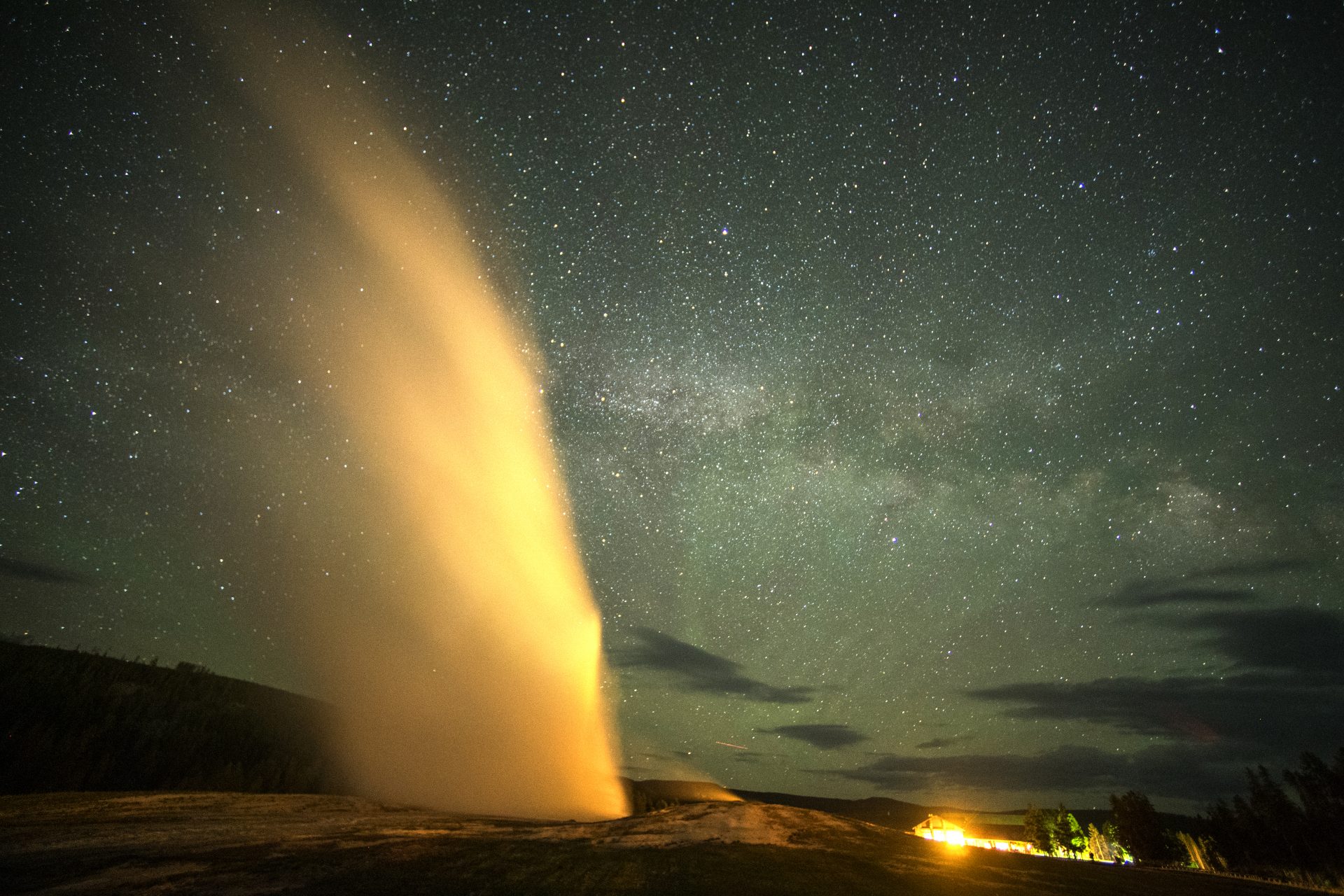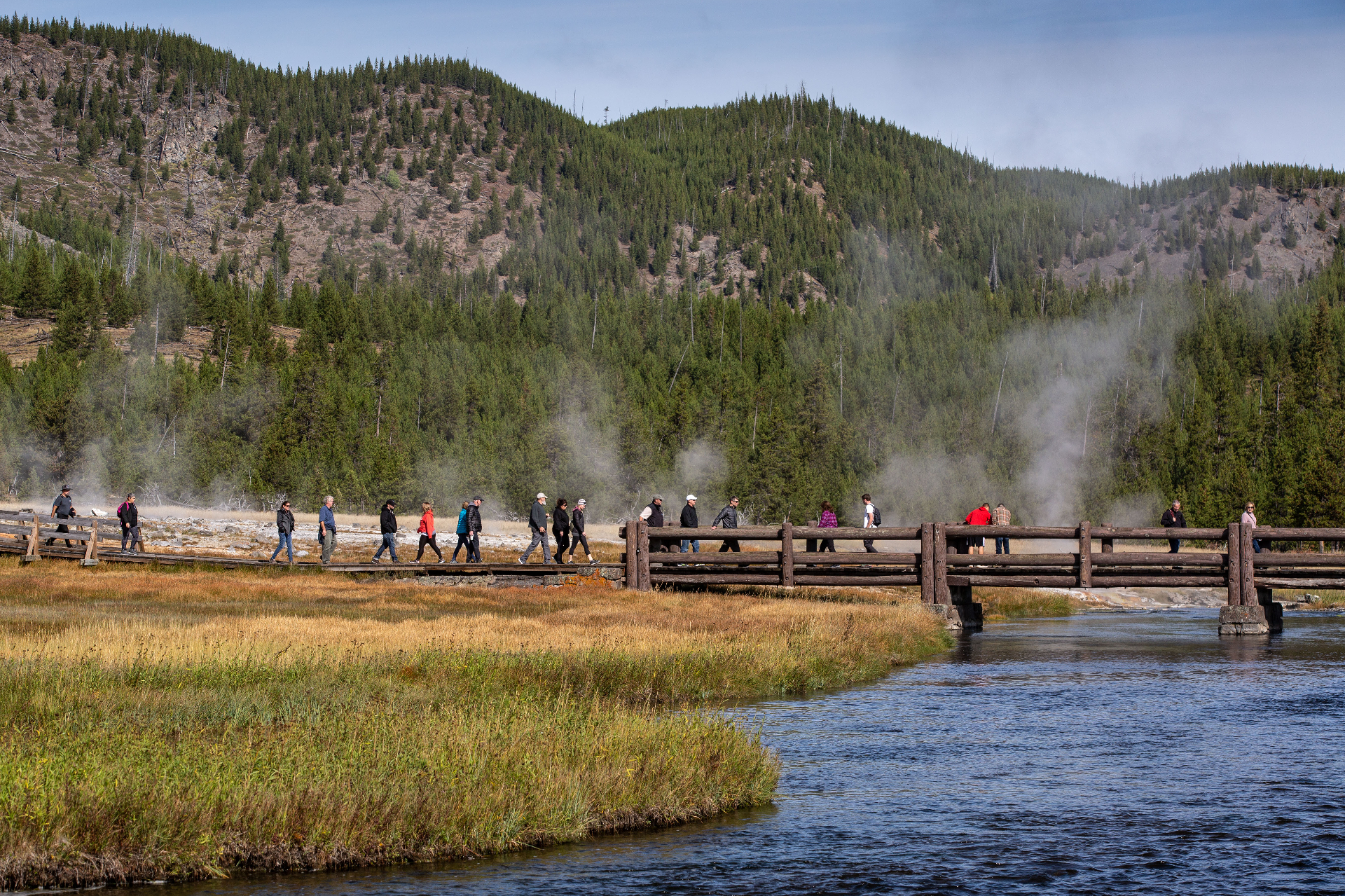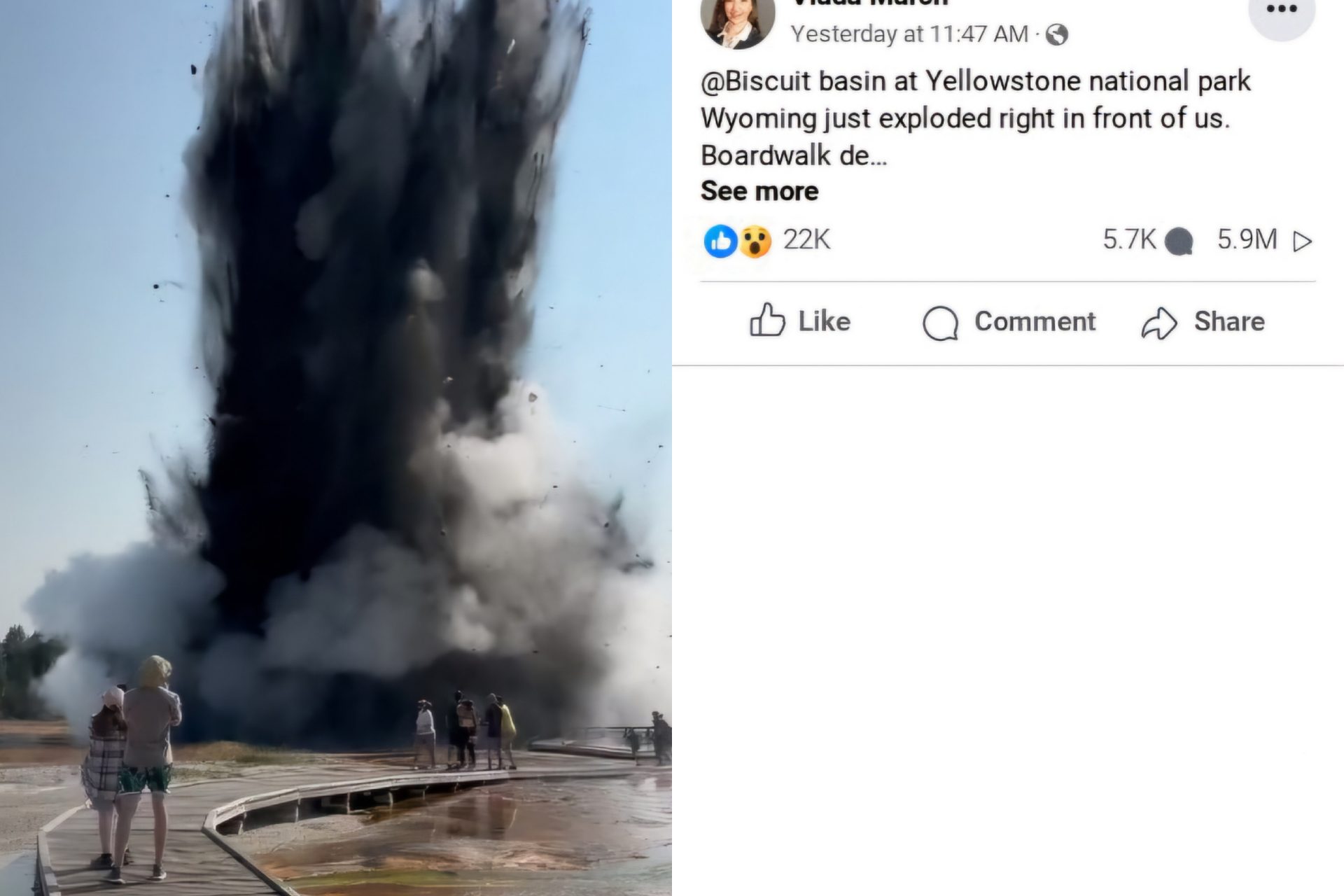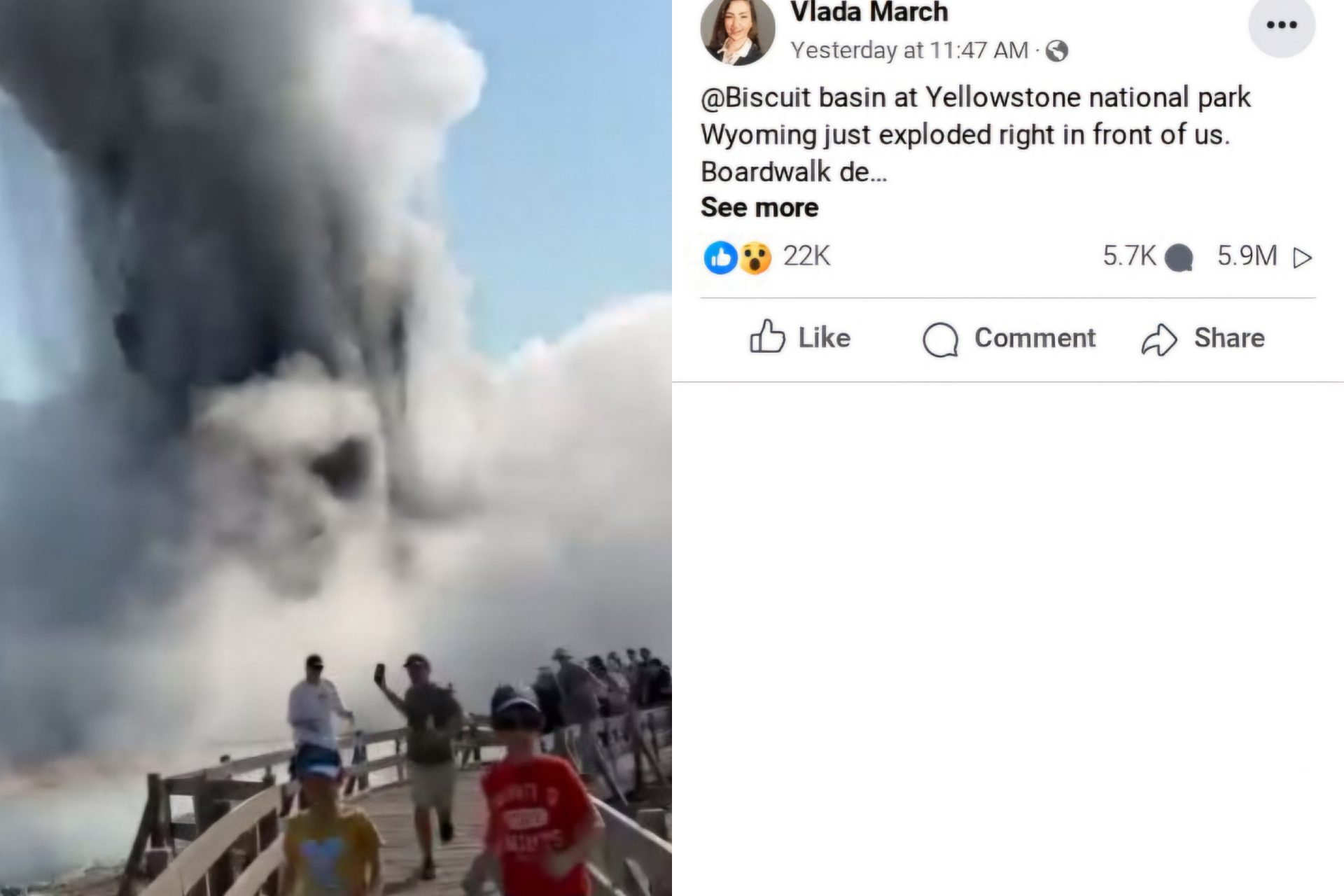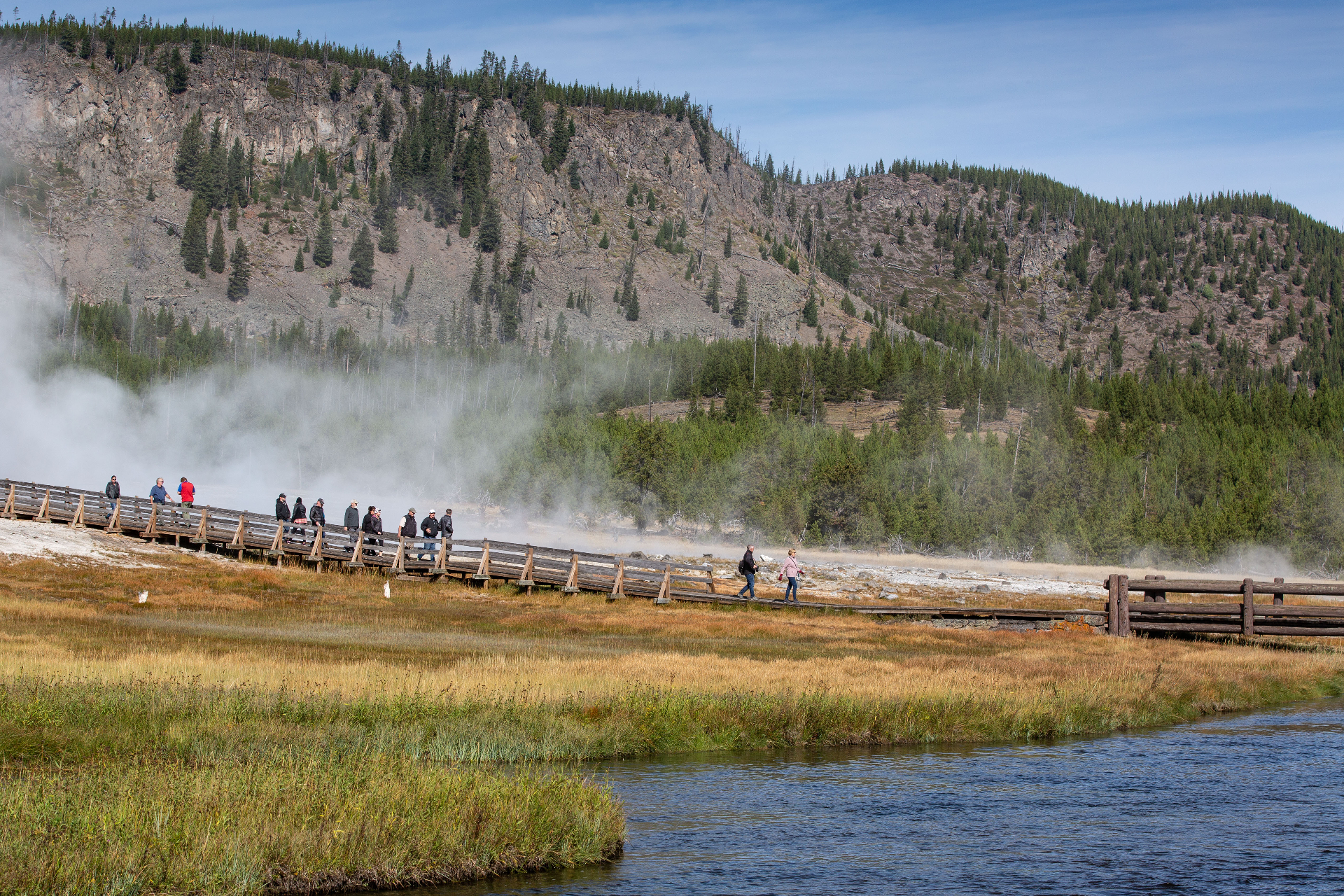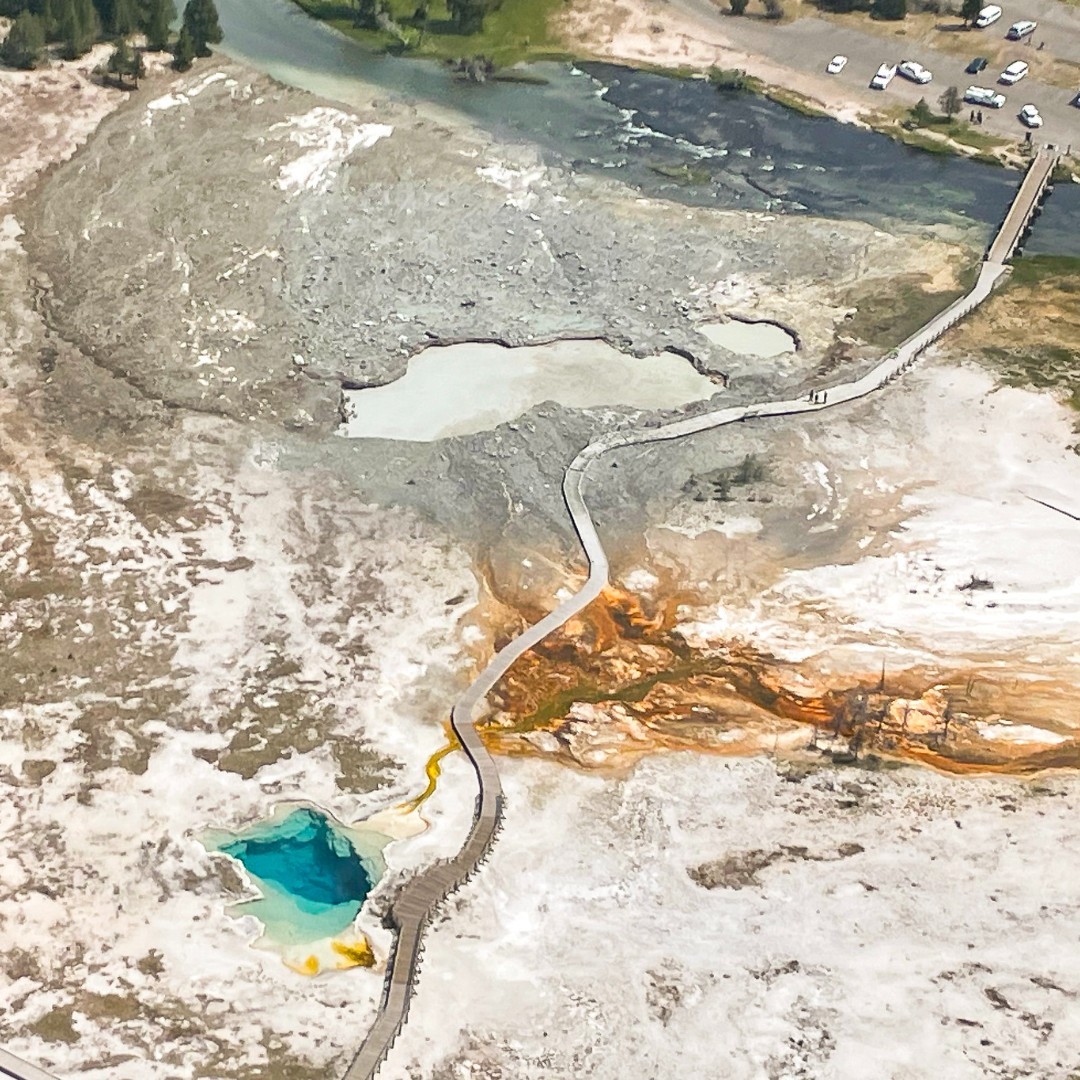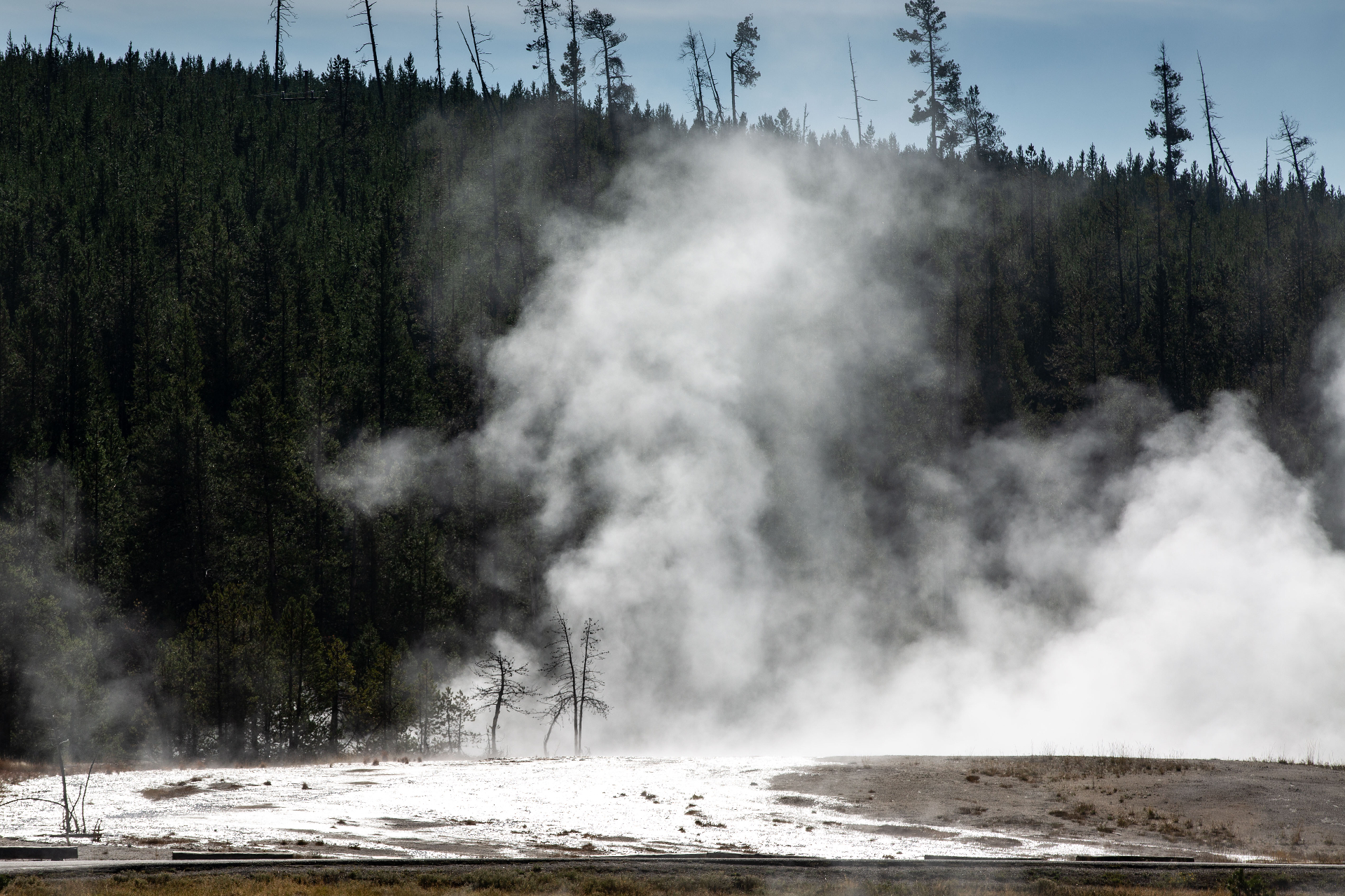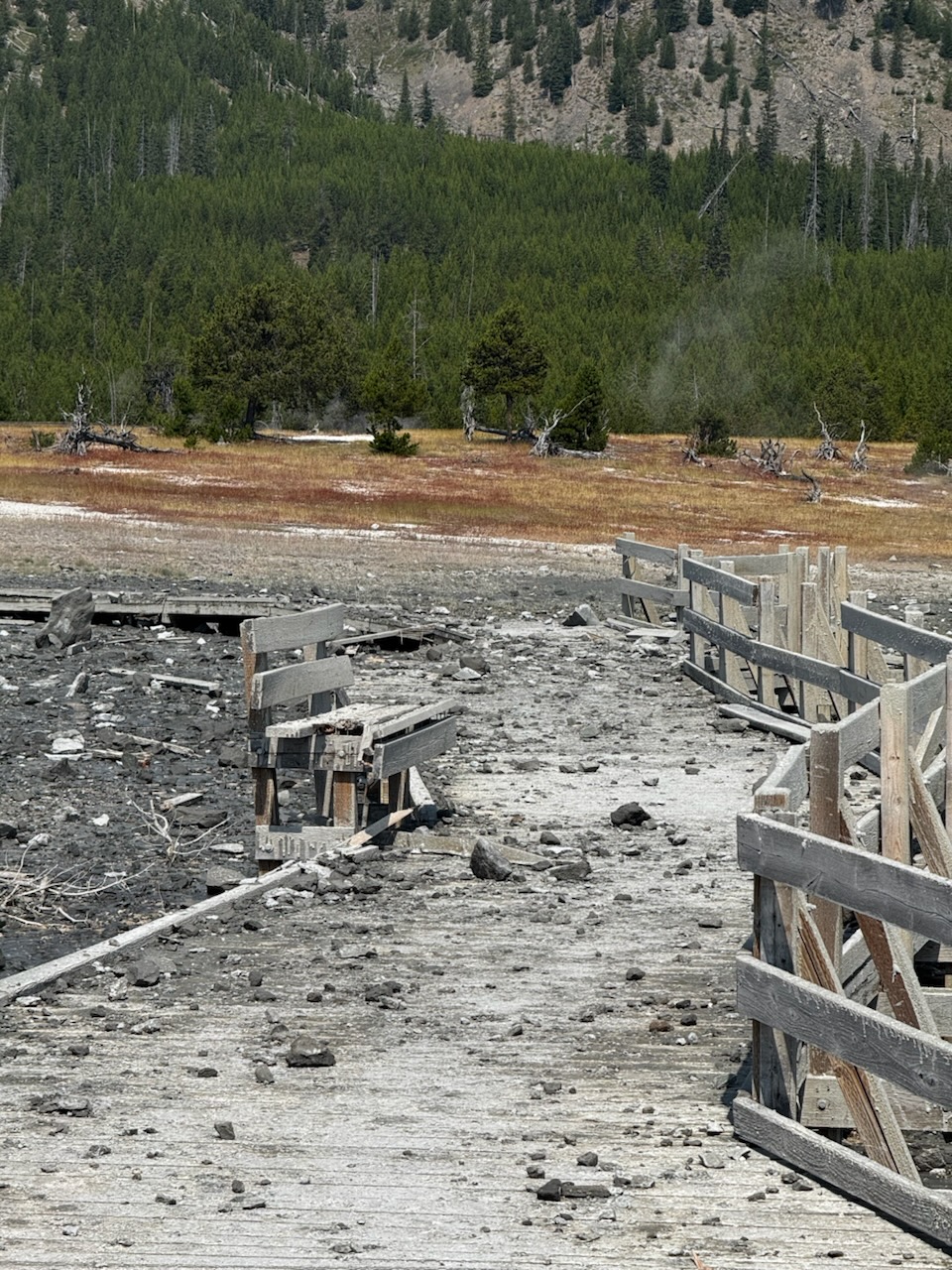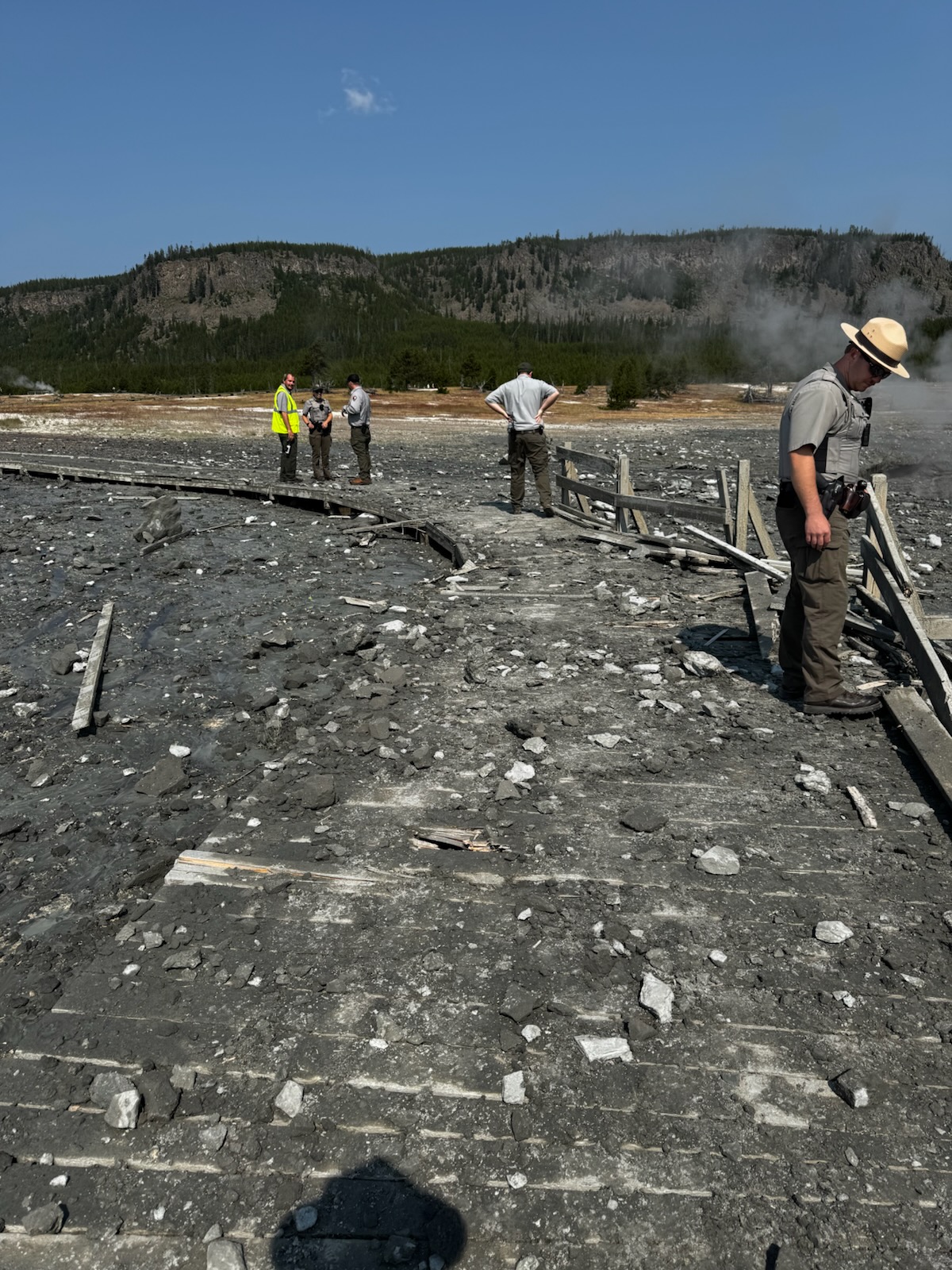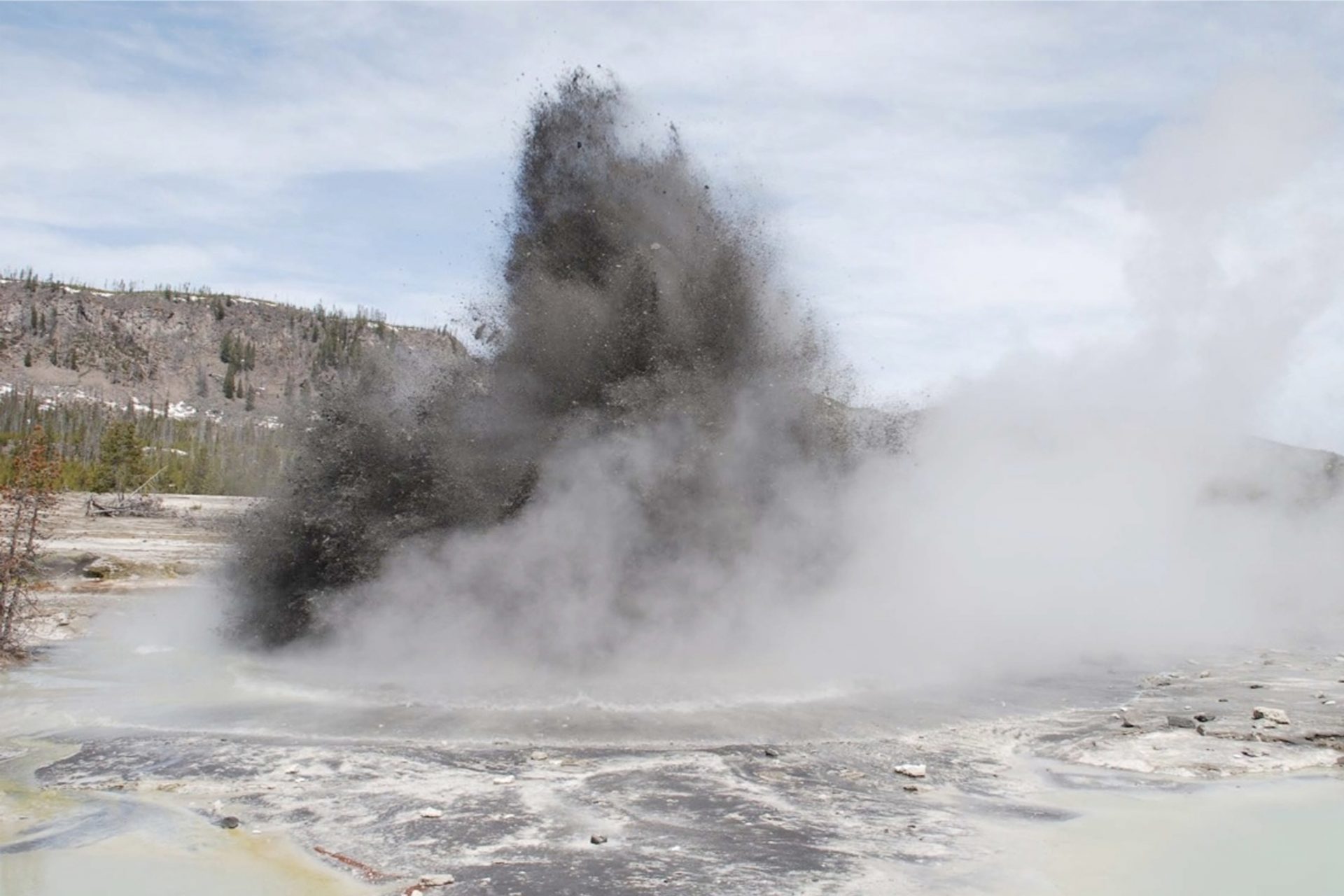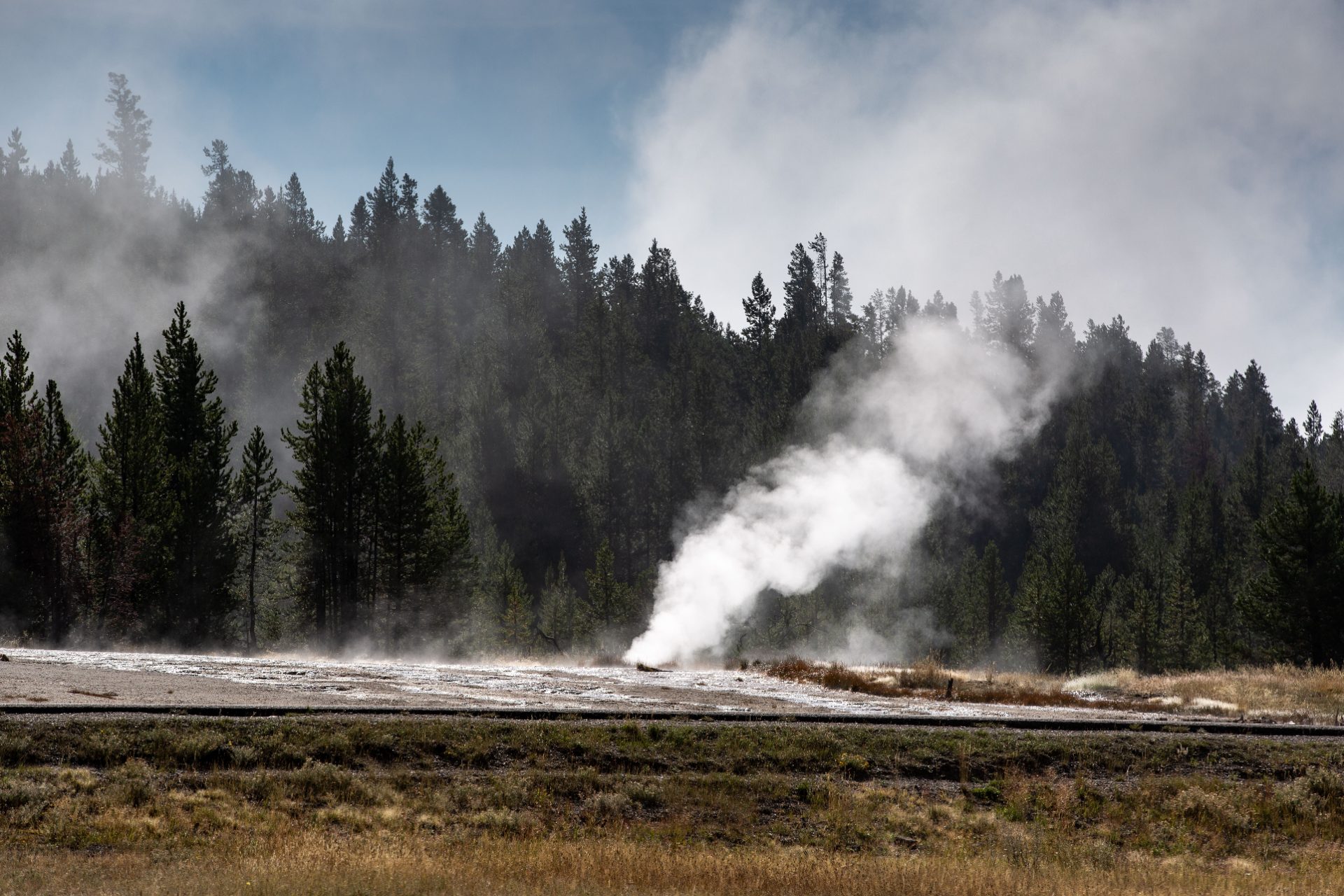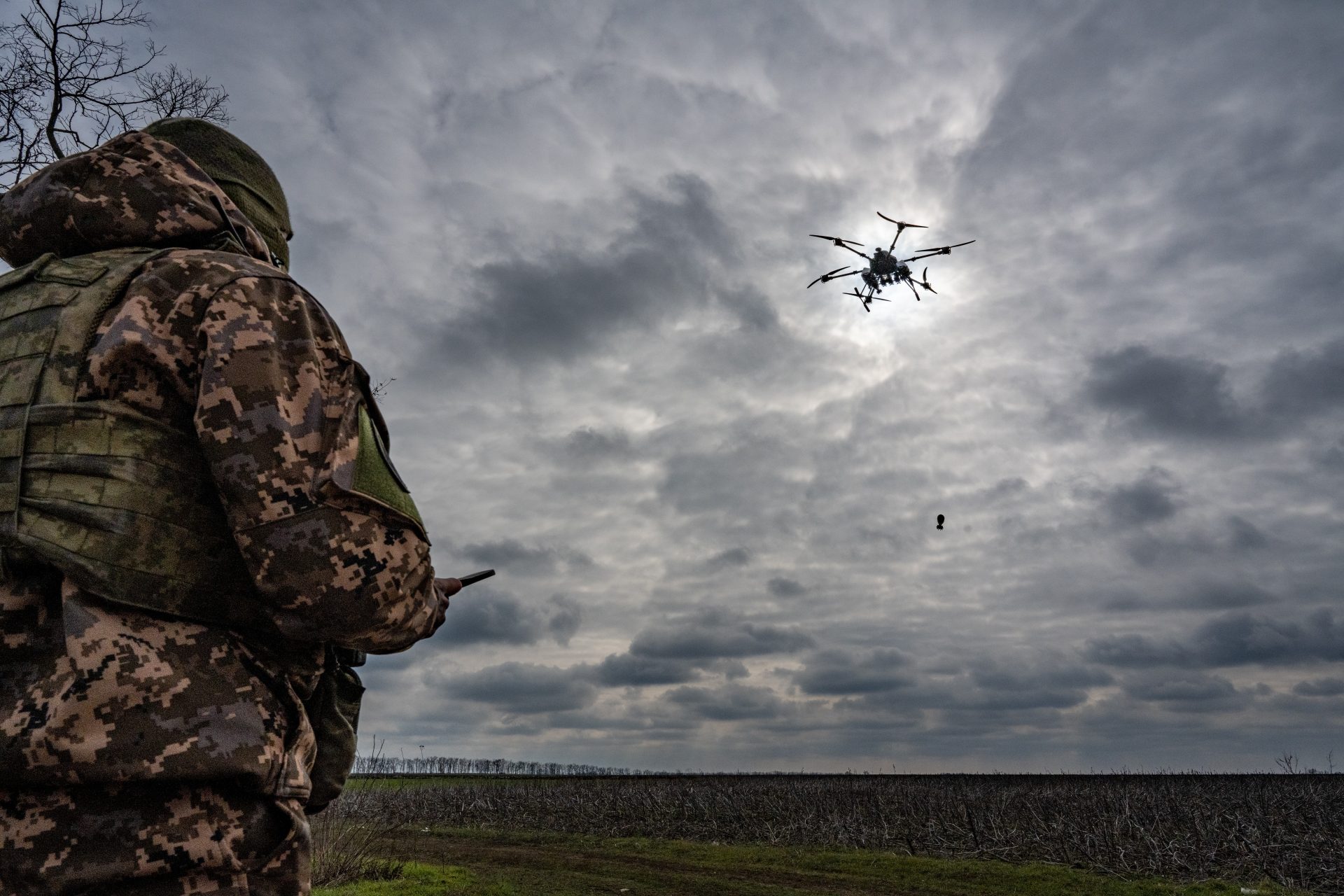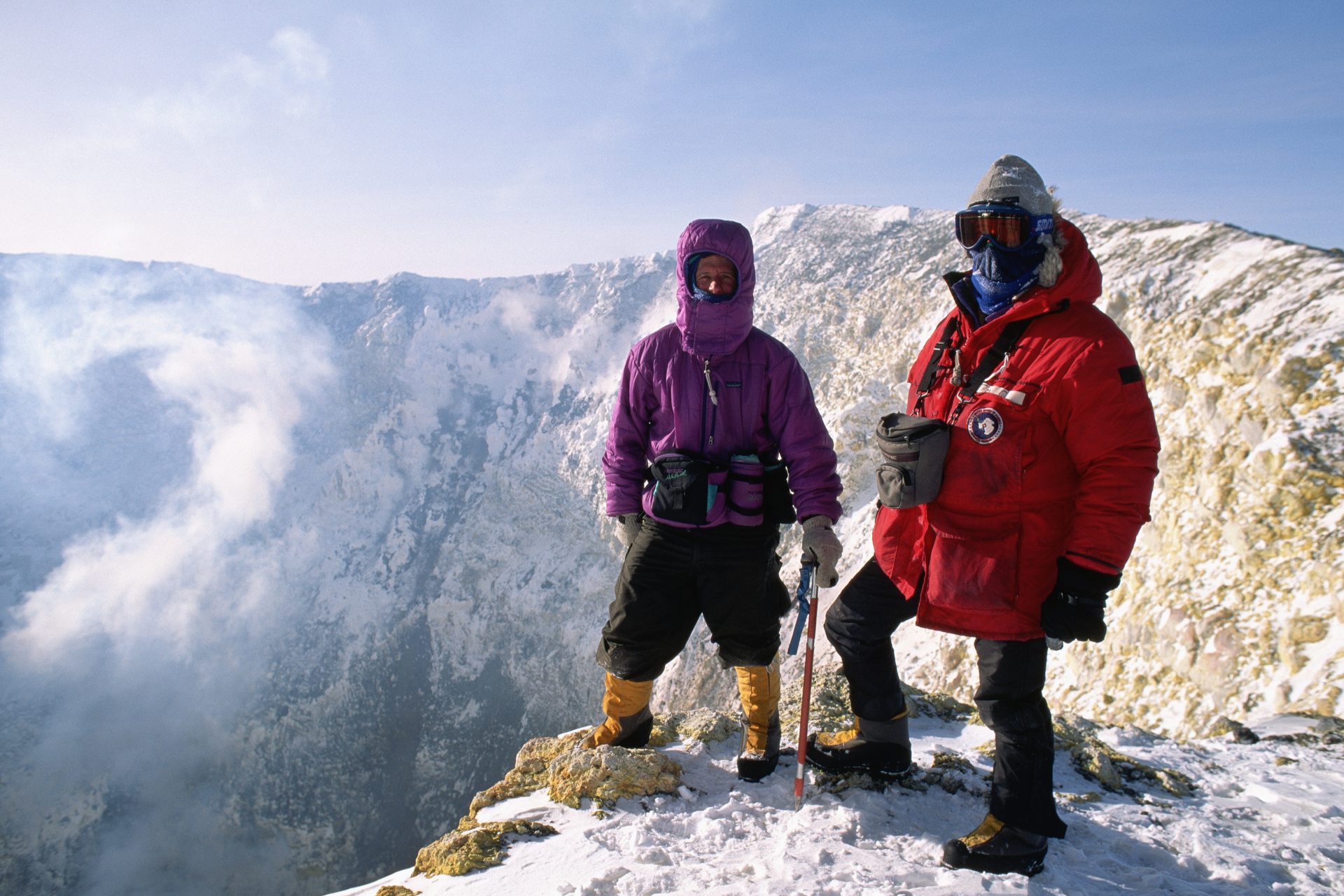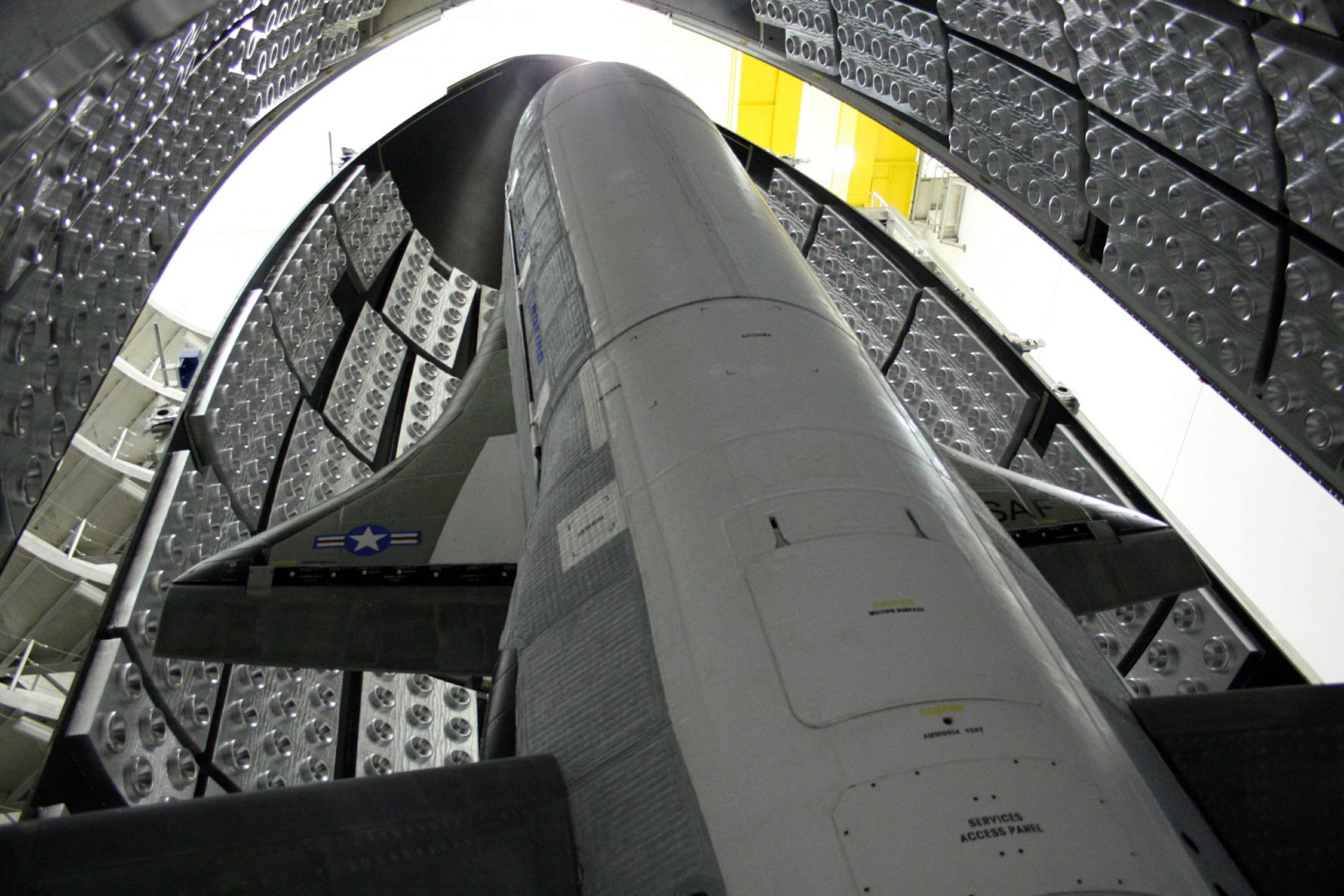Yellowstone Eruption Captured: See the Incredible Photos
The Yellowstone National Park attracts millions of visitors each year but recently tourists were surprised by some unexpected excitement during their visit.
On July 23 a sudden hydrothermal explosion scared visitors in the Biscuit Basin, a popular Yellowstone National Park area (pictured).
One of the witnesses, Vlada March, caught the event on camera. The exposition happened as visitors strolled through a boardwalk.
Photo: Vlada March / Facebook
The video shows people, including children, running away from the explosion. According to The New York Times, dozens of tourists were on the boardwalk.
Photo: Vlada March / Facebook
Ms. March told the newspaper that the giant ash cloud covered the sun, turning everything dark. She added that her 70-year-old mother was covered in ashes after getting caught in the explosion.
The National Park Service later shared this areal view of the explosion in social media. The light gray area, they explained, shows how far fragments of rock and mud were tossed.
Photo: NPS / Joe Bueter
Michael Poland, the scientist in charge at the Yellowstone Volcano Observatory, told the NY Times that these explosions happen when water becomes steam in the park's underground water system.
After the explosion, the NPS clarified on social media that no injuries were reported, and the extent of damage is still unknown. Still, they closed the area to the public.
Photo: NPS / Facebook
The NPS also said, "Park staff and staff from USGS (United States Geological Survey) will monitor conditions and reopen the area once deemed safe."
Photo: NPS / Facebook
This is not the first time that the Biscuit Basin has experienced an explosion of this kind. The last one (pictured) was in 2009.
Photo: USGS
According to The NY Times, similar explosions occurred earlier this year in the Norris Geyser Basin, another Yellowstone area.
According to the NPS, over half of the world's active geysers are in Yellowstone National Park. Their website says around 500 to 700 geysers are active yearly.
More for you
Top Stories



